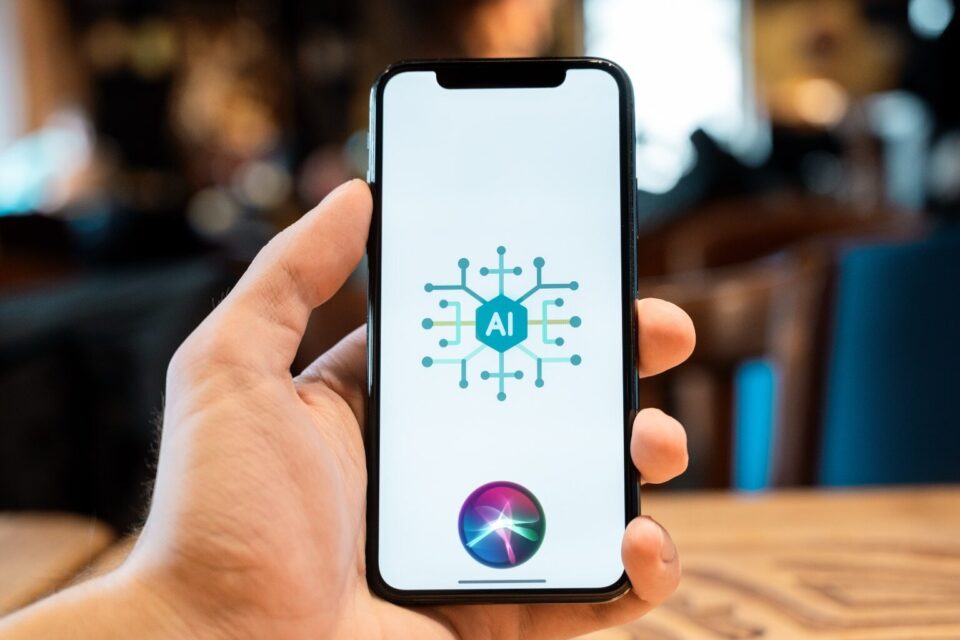One of the most significant ways Apple plans to enhance the user experience with its help is by upgrading Siri with a whole new artificial intelligence-based search engine. Multiple reports made mention of the company working on a new system known by the code name World Knowledge Answers that would bring search capabilities that were conversational, and thus easier to understand, not only to Siri but also to the browser Safari and the software Spotlight.
Why Apple siri Is Reinventing Search
While apple Siri is capable to a certain extent of answering simple questions, it has a hard time dealing with more complicated ones. A typical case would be the situation where the assistant practically redirects the user to a search engine or an additional tool like ChatGPT. It appears that Apple is committed to altering the scenario.
The AI system of the new generation is expected to bring to life more vivid answers — fusing together not just text, but images, videos, and even localized information — all wrapped up with AI-created summaries which are more reader-friendly and quicker than before.
By making apple Siri a real “answer engine,” Apple is banking on that it will not have to rely that much on outside search providers and that it will be able to change the dynamics of its relationship with user queries.
What We Know: World Knowledge Answers
Here’s some of the public information regarding Apple’s AI search ambitions.
- Siri as the debut location for the AI feature: The new AI feature, which will be laterally extended to Safari and Spotlight, is expected to be launched inside Siri first.
- One system with multiple components: There will be a planner (to understand user intent), a search module (for both internet and device content), and a summarizer (for providing short answers) integrated in a single system.
- The use of a hybrid model for sourcing: Apple could be combining third-party models (for example, Google’s Gemini) with its own Foundation Models particularly for private user data processing so as to maintain the focus on privacy by Apple.
- The complement between on-device and cloud: The tool is designed in such a way that it can use cloud infrastructure as well as local device data to offer seamless, contextual answers.
- When the tool will be made public: We expect the first deployment to take place in the spring of 2026 at the latest, most probably with the release of iOS 26 (codename “Luck E”) and a version like iOS 26.4.
What stands in their way
The picture that Apple’s imagination paints of the future is quite daring and ambitious yet, there are numerous challenges that it must grapple with, one of which is talent flight.
1.Talent flight
The AI department and the teams involved in the research of Apple have been suffering from the problem of employee resignation for quite a while now. Some of the most prominent researchers have chosen to move to Meta, OpenAI, and Anthropic, consequently, Apple siri is being put in a position where it is obliged to take measures to keep a good number of the top AI researchers at the company as well as to hire the best ones.
2.Research Costs
The cost of producing powerful, custom large language models is very high. Initially, Apple was contemplating a partnership with Anthropic’s Claude, but eventually, it took the decision that it was too expensive. There is a fine line between making use of the external models and doing the internal development.
3. Privacy vs. Capability
The brand promise of Apple includes privacy as one of its main features. Putting user data into contextual AI answers – without going against trust – will necessitate very powerful security measures. The hybrid architecture (on-device + cloud) may be helpful, but the main thing is how well it is carried out.
4. Competitive Pressure
Google, OpenAI, Perplexity, Microsoft, and others are highly aggressive in pursuing AI search. To make a breakthrough by Apple, the experience must not only be equal but superior in terms of quickness, precision, and user-friendliness.
What This Means for Users
The world would be different if Apple siri were able to do this next generation of iPhones, iPads, and Macs might then have the following benefits:
- Conversational, instant answers when rapidly switching between apps is not necessary
- Searching all through web content, local files, photos, and apps in one place
- Harder voice navigation and hands-free command execution made smarter by learning your preferences
- A seamless AI experience deeply integrated into the OS rather than just another app
The truth be told: Siri might turn from a voice assistant into a smarter, more contextually aware digital companion.
Final Thoughts
Apple’s decision to develop World Knowledge Answers is an indication of the bigger change in the future of our interaction with devices. Rather than keeping search and voice commands as separate, fragmented functions, Apple siri is merging them into one intelligent system that comprehends context, content, and intent.
If successful, this move would extend Apple’s position as not only a hardware leader but also as a major contender in AI-driven information systems – directly battling OpenAI, Perplexity, and the dominance of Google.
We are looking to Spring 2026. Meanwhile, Apple has the challenge of balancing privacy, performance, and innovation. When it redefines the Siri future, it will be quite the technological feat if it is ever able to pull it off.
Consider adding a prompt for readers to share their views on the future of Siri or their privacy concerns. (“What do you want from next-gen Siri? Comment below!”)

